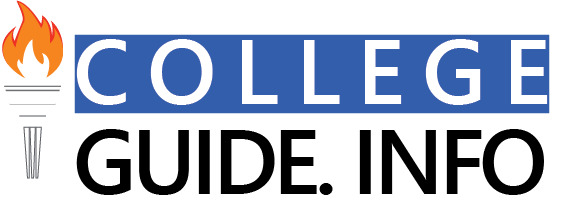





10 Interesting Facts about The University of Texas at Tyler
- The University of Texas at Tyler (UT Tyler) is a public university located in Tyler, Texas, United States. It was founded in 1971 as part of the University of Texas System.
- UT Tyler offers a wide range of undergraduate and graduate programs across various disciplines, including business, education, engineering, health sciences, liberal arts, nursing, and sciences. The university is known for its strong programs in nursing, business, engineering, and education.
- The university is accredited by the Southern Association of Colleges and Schools Commission on Colleges (SACSCOC) and holds specialized accreditations for specific programs, such as the College of Business and Technology and the College of Nursing and Health Sciences.
- UT Tyler has a diverse student body, representing all 50 states and over 60 countries. The university values inclusivity The campus of UT Tyler spans over 200 acres and features modern facilities, including classrooms, laboratories, a library, a student center, residence halls, and athletic facilities. The university continues to invest in infrastructure to support student learning, research, and engagement.
- UT Tyler is committed to research and scholarly activity. The university has research centers and institutes dedicated to various fields, including biomedical research, cybersecurity, education, and engineering. Faculty and students actively engage in research projects that contribute to advancements in their respective fields.
- The campus of UT Tyler spans over 200 acres and features modern facilities, including classrooms, laboratories, a library, a student center, residence halls, and athletic facilities. The university continues to invest in infrastructure to support student learning, research, and engagement.
- The university places a strong emphasis on experiential learning and provides opportunities for internships, cooperative education programs, service-learning, and research projects. These experiences allow students to gain practical skills, apply their knowledge, and develop a competitive edge.
- UT Tyler offers a variety of support services to assist students in their academic and personal development. These services include academic advising, tutoring, career counseling, health services, and wellness programs. The university also provides resources for veterans, international students, and students with disabilities.
- The university has a proud tradition of athletics and competes in the NCAA Division II as a member of the Lone Star Conference. UT Tyler sponsors a range of sports teams, including basketball, baseball, softball, golf, soccer, and tennis.
- UT Tyler has a vibrant campus life with various student organizations, clubs, and activities. Students can engage in extracurricular activities, leadership development programs, cultural events, and community service initiatives. The university also hosts lectures, performances, art exhibitions, and athletic events that contribute to the intellectual and cultural enrichment of the campus community.
Admissions
Acceptance Rate
94%
| SAT Range | 1040-1250 |
| ACT Range | 19-25 |
| Application Fee | $60 |
| SAT/ACT | Considered but not required |
| High School GPA | Required |
| Early Decision/Early Action | No |
Tuition & Fee
| Undergraduate Tuition Academic Year Cost of Attendance (15 Credit Hours Per Semester) | ||||||
| Resident at Home With Parents | Resident On-Campus | Resident Off-Campus | Out of State at Home With Parents | Out of State On-Campus | Out of State Off-Campus | |
| State Tuition | $1,633 | $1,633 | $1,633 | $15,405 | $15,405 | $15,405 |
| Board Tuition | $5,761 | $5,761 | $5,761 | $7,826 | $7,826 | $7,826 |
| Fees | $2,461 | $2,461 | $2,461 | $2,461 | $2,461 | $2,461 |
| Room & Board | $5,755 | $9,907 | $9,117 | $5,755 | $9,907 | $9,117 |
| Books & Supplies | $2,740 | $2,740 | $2,740 | $2,740 | $2,740 | $2,740 |
| Transportation | $2,668 | $1,279 | $2,668 | $2,668 | $1,279 | $2,668 |
| Personal | $1,929 | $1,512 | $2,443 | $1,929 | $1,512 | $2,443 |
| Loan Fees | $80 | $80 | $80 | $80 | $80 | $80 |
| Total | $23,027 | $25,373 | $26,903 | $38,863 | $41,210 | $42,739 |
All Programs
Arts
Arts
Business
Accounting
Business
Construction Management
Finance
Human Resources
Managerial Economics
Marketing
Health Professions
Communication Disorders
Foods, Nutrition, and Wellness Studies
Kinesiology and Exercise Science
Nursing
Humanities
Communications
English
History
Liberal Arts and Humanities
Music History and Literature
Political Science and Government
Psychology
Social Science Research Methods
Social Work and Youth Services
Spanish Language and Literature
Science, Technology, and Math
Biochemistry and Molecular Biology
Biology
Chemical Engineering
Chemistry
Civil Engineering
Electrical Engineering
Information Science
Information Technology
Mathematics
Mechanical Engineering
Students
Full-Time Enrollment
4,731 Undergrads
Part-Time Undergrads
2,454

